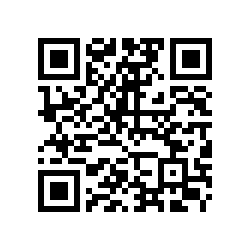Analisis Persepsi Masyarakat Terhadap Komunikasi Kebijakan Menggunakan Topic Modelling (Kebijakan Protokol Kesehatan Covid-19 Dalam Penggunaan Masker)
(1) Universitas Telkom
(2) Universitas Telkom
(3) Universitas Telkom
(*) Corresponding Author
Abstract
Full Text:
PDFReferences
Astawa, I.G.P., Na’a,Suprin., “Memahami Ilmu Negara dan Teori Negara”, PT Refika Aditama, Bandung, 2009.
Baruah, T.D., “Effectiveness of Social Media as a tool of communication and its potential for technology enabled connections: A micro-level study”, International Journal of Scientific and Research Publications, Vol.2, Issue 5, 2012.
Basch, et.al., “Preventive Behaviors Conveyed on YouTube to Mitigate Transmission of COVID-19: Cross-Sectional Study”, JMIR Publication, 2020.
Chan, AK,.et.al., “Social media for rapid knowledge dissemination: early experience from the COVID-19 pandemic”, Anaesthesia. 2020.
Cielen, et.al., “Introducing Data Science”, Manning Publications Co.
Collins, C., Hasan,S., and Ukkusuri, S.V., “A novel transit rider satisfaction metric: Rider sentiments measured from online social media data”, Journal of Public Transportation, University of South Florida, 2013.
Dye, T.R., “Understanding Public Policy”, Englewood Cliffs, NJ: Prentice-Hall, 1972.
Doig, C., “Introduction to topic modeling in python”. 2015.
Edward III, G.C., “Implementing Public Policy”, Washington DC: Congressional Quarterly Press, 1980.
Guo,Y., WEI, Y., “Government communication effectiveness on local acceptance of nuclear power: Evidence from China”. Journal of Cleaner Production, 2019.
Hausmann, R., “Flattening the COVID-19 Curve in Developing Countries”, Project Syndicate, 2020.
Kenyon, G. N., Sen, K. C., “The Perception of Quality Mapping Product and Service Quality to Consumer Perceptions”, Springer, 2015
Kim, Y., Kim, W., and Kim, M., “An international comparative analysis of public acceptance of nuclear energy”, Energy Policy, 2014.
Mazarura, J and WAAL, A., “A comparison of the performance of latent Dirichlet allocation and the Dirichlet multinomial mixture model on short text”, PRASA-RobMech International Conference, 2016.
Medina.et.al., “Social Media: A New Way of Public and Political Communication in Digital Media”, International Journal of Interactive Mobile Technologies, 2017.
Molle, A. D., “The heart of the enlightened: a book of story meditations. Doubleday”, 1987.
Padilla, D.A.G and Tortolero,B.L., “Social media influence in the COVID-19 Pandemic”, Int. brazil Jurol.vol.46, 2020.
Risyad,M.A., & Ramantoko, G., “Analisis Asosiasi Kata Untuk Mengetahui Persepsi Pengguna Media Sosial Terhadap Penurunan Batas Atas Tiket Pesawat”. e-Proceeding of Management, Vol.7,2020.
Sarwono, W S., “Pengantar Psikologi Umum”, Rajawali Pers, Jakarta, 2010.
Thoha, M., “Dimensi-dimensi Prima Ilmu Administrasi Negara”, Raja Grafindo Persada, Jakarta, 2012.
Wang,et.al., “Immediate Psychological Responses and Associated Factors during the Initial Stage of the 2019 Coronavirus Disease (COVID-19) Epidemic among the General Population in China”, Int J Environ Res Public Health, 2020.
Worldometers., “Coronavirus Update (Live): 67,499,770 Cases and 1,543,747 Deaths from COVID-19 Virus Pandemic”, 2020.
Wyrwoll, C., “Social Media: Fundamentals, Models, and Ranking of User-Generated Content”, Elsevier, 2014
DOI: http://dx.doi.org/10.30645/j-sakti.v6i1.442
Refbacks
- There are currently no refbacks.
J-SAKTI (Jurnal Sains Komputer & Informatika)
Published Papers Indexed/Abstracted By:
Jumlah Kunjungan :











